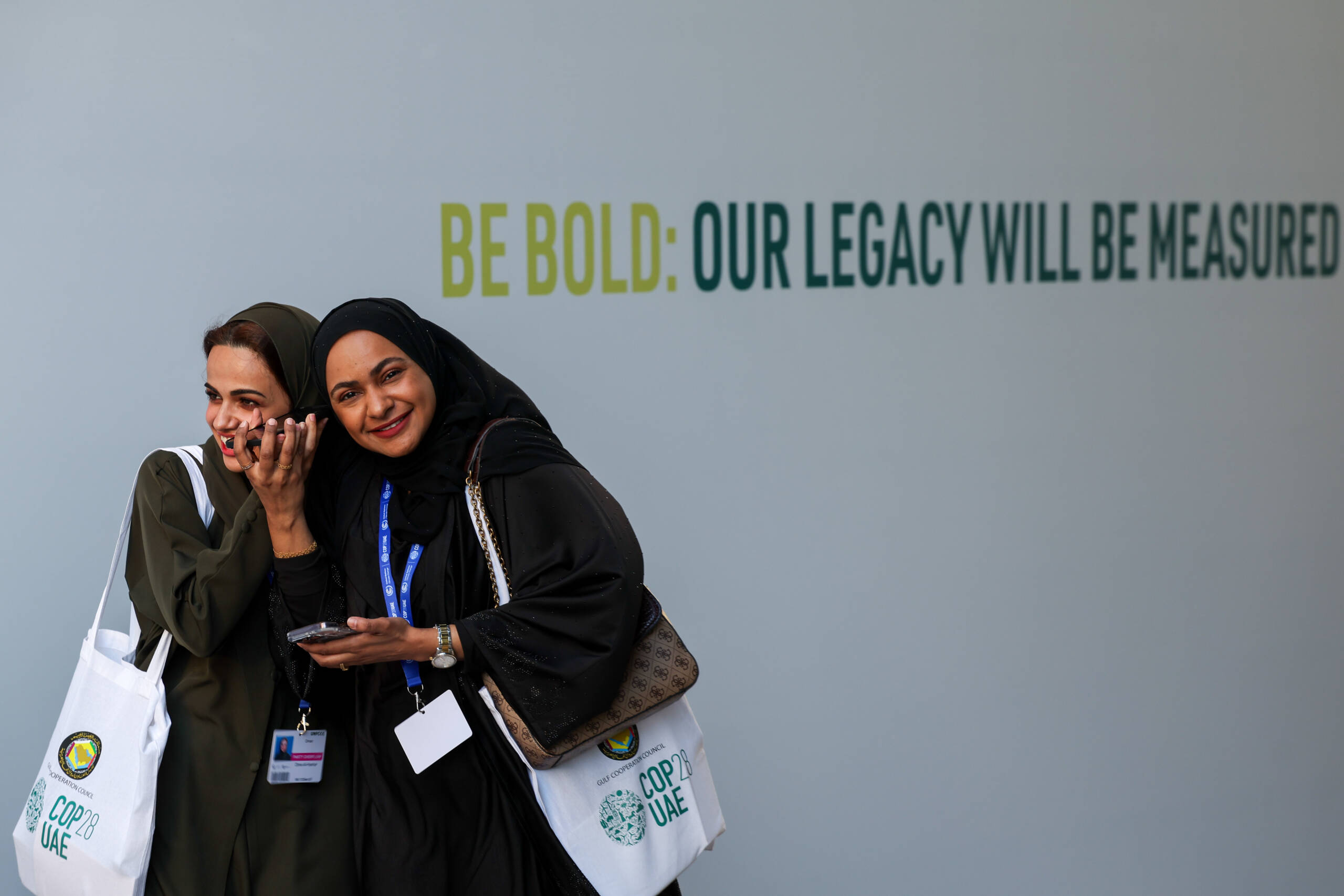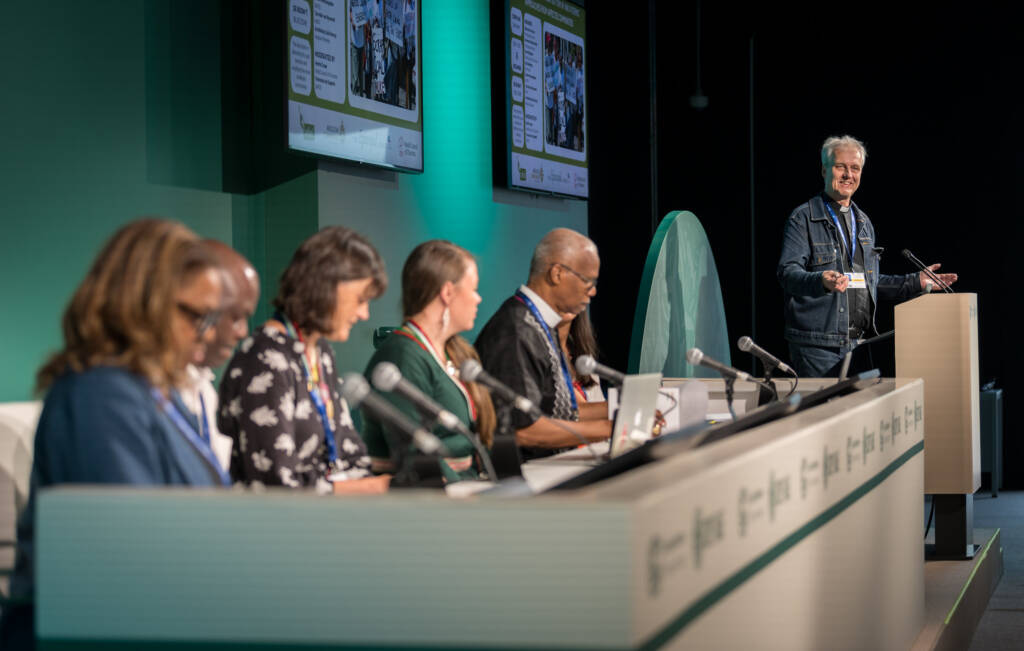Despite a commendable start of COP28 with the operationalization of the Loss and Damage Fund, the first week at COP28 ended yesterday with a stall on some of the most critical issues.
Negotiators from the almost 200 countries gathered in Dubai are handing over their work to their countries’ ministers for the next stage in negotiating a global consensus on what a final COP28 deal should look like.
Countries at the COP28 climate talks need to stop posturing, aim high and agree on a way to end the “fossil fuel era as we know it”, U.N. climate chief Simon Stiell said on Wednesday.
“All governments must give their negotiators clear marching orders. We need highest ambition, not point-scoring or lowest common denominator politics,” Stiell told a news conference.

General view of attendees at the UN Climate Change Conference COP28 at Expo City Dubai on December 6, 2023, in Dubai, United Arab Emirates. (Photo by COP28 / Christopher Pike)
Stiell isn’t alone in his urgings.
Sven Harmeling, the Global Policy Lead, for CARE Climate Justice Centre, said:
“Negotiators are not close to an agreement on many of the most pressing issues, from fossil fuel phase-out to a strong support package for poorer countries to address the climate crisis. There is an abundance of evidence to demonstrate the scale and gravity of the climate crisis. As Ministers take over after the technical negotiations, they must grasp the urgency of this moment. Their decisions will affect the lives and livelihoods of millions of people in the most marginalized communities.”

6 December 2023, Dubai, United Arab Emirates: Henrik Grape from the World Council of Churches introduces a side-event entitled Faiths for Just Transition: Bottom-up and Systemic Approaches from Affected Communities at the United Nations climate summit COP28. Photo: LWF/Albin Hillert
Many of the discussions have been focused on the first Global Stocktake — a status of where nations are at with meeting their climate goals to limit warming to 1.5 degrees Celsius (2.7 degrees Fahrenheit) compared to pre-industrial times and how they can get there. On Tuesday, negotiators produced a new draft of the text, but it had so many possibilities in its 24 pages. As they are going over the document word by word to see what they can live with and what they can’t, Cedric Schuster, the chair of the Association of Small Island States, said failing on the global stocktake would “make it significantly more difficult to leave this COP saying we can achieve the 1.5 C limit.” He said major emitters and developed countries need to take the lead and ramp up efforts to phase out fossil fuels.
“If we fail, the consequences will be catastrophic,” he said.
That sentiment is one that many faith communities and partners have been sharing for a long time. Faith leaders are offering moral and pastoral services to diplomats working around the clock on the agreement, and for the first time have interfaith representatives attending the formal negotiation sessions. Faith leaders also issued an interfaith statement in support of reducing and eventually exiting fossil fuels — a hot button issue at the conference overseen by an Emirati oil executive.
Watch Earth Negotiations Bulletin team leader Jennifer Allan, Ph.D. in Dubai as she discusses:
• What negotiating items have seen progress.
• Where the greatest obstacles have arisen—and why.
• What we can hope for as the talks head to their finish line.